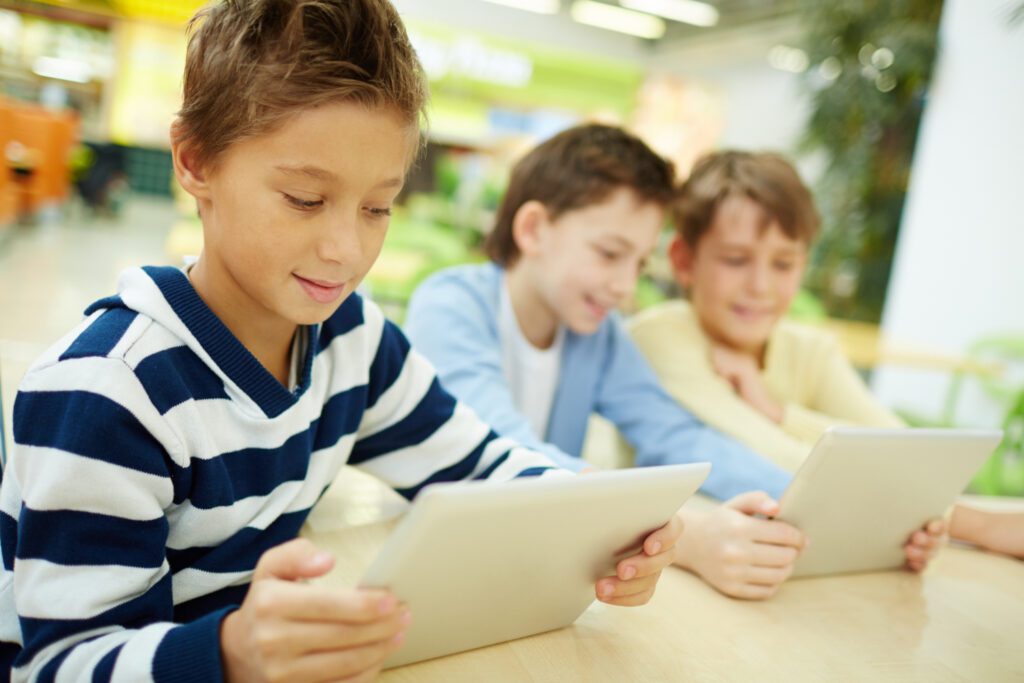Balancing Screen Time in Education: Personal Learning Device

Introduction
In the realm of education, technology’s presence is undeniable, offering a world of possibilities for enhanced learning. Yet, maintaining a balance between screen time and holistic development remains a challenge. In Singapore, the Ministry of Education (MOE) had announced that as part of the National Digital Literacy Programme, every secondary student would have their own Personal Learning Device (PLD) by the end of 2021. Complemented by enhanced internet connectivity that is provided to schools, PLDs aims to better support teaching and learning and develop students’ digital literacies. In addition, MOE’s recent initiative to provide safeguards for parents underscores the significance of managing screen time in education. In this article, we delve into the intricacies of balancing screen time and learning, while examining how Singapore’s MOE is actively addressing this concern.
The Power and Pitfalls of Screens in Education
Screens serve as a gateway to vast educational resources and interactive tools such as Nurture our award-winning student wellness and holistic development platform, enriching the learning experience:
- Access to Knowledge: Digital devices provide students with instant access to a treasure trove of information, beyond the confines of traditional textbooks.
- Engaging Learning: Educational apps and multimedia content captivate students’ attention, fostering a deeper understanding of complex subjects.
- Personalization: Adaptive platforms cater to diverse learning styles, allowing students to progress at their own pace and level.
- Global Connections: Technology enables students to collaborate with peers worldwide, fostering cross-cultural understanding.
However, the downsides of excessive screen time cannot be overlooked:
- Health Concerns: Prolonged screen exposure may lead to digital eye strain, sleep disturbances, and a sedentary lifestyle.
- Social Skills: Overdependence on screens might impede the development of essential social skills nurtured through face-to-face interactions.
- Distractions: The allure of non-educational content can divert students’ focus, affecting their concentration and productivity.
Singapore’s MOE Safeguards: Empowering Parents
Singapore’s MOE recognizes the importance of a balanced approach and has implemented safeguards to empower parents:
- Flexibility in Device Management: MOE’s initiative provides parents with greater flexibility to manage their child’s use of learning devices at home. This encourages open discussions and joint decisions on screen time limits.
- Empowering Responsible Use: By involving parents in the conversation, MOE seeks to instill responsible digital habits, ensuring students benefit from technology without compromising their holistic growth.
- Guidelines and Resources: MOE equips parents with guidelines and resources to navigate the digital landscape effectively, enabling them to make informed decisions about their child’s screen time. For example, all PLDs are pre-installed with a Device Management Application (DMA). The DMA blocks students’ access to undesirable Internet content such as pornography, gambling, and violence. In addition, the default DMA settings also disable the use of PLDs from 11pm to 6am to ensure that students get sufficient rest.
Strategies for Effective Screen Time Management
Building on Singapore’s MOE safeguards, educational institutions globally are adopting strategies to balance screen time:
- Clear Guidelines: Schools establish explicit screen time policies, helping students and parents understand the appropriate limits and types of content.
- Hybrid Learning Models: Blending online and offline activities creates a well-rounded education experience that integrates technology seamlessly.
- Balanced Integration: Employing devices for interactive learning and research while prioritizing face-to-face interactions for social growth.
A Holistic Approach for Future Success
Education’s digital transformation demands a holistic approach. Singapore’s MOE safeguards highlight the importance of a collaborative effort in managing screen time. By engaging in open conversations, setting clear boundaries, and fostering responsible technology use, parents and schools can create an environment that nurtures well-rounded individuals poised for success in the digital age. As we navigate this ever-evolving landscape, embracing the potential of screens while valuing offline experiences remains paramount, ensuring that our students’ growth is both comprehensive and enduring.


